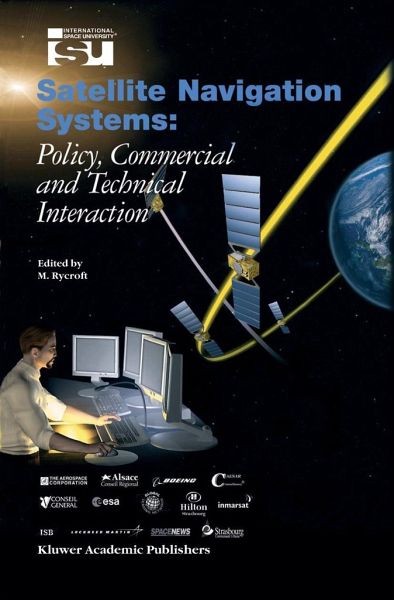Nicht lieferbar

Satellite Navigation Systems
Policy, Commercial and Technical Interaction
Herausgegeben: Rycroft, Michael J.
Versandkostenfrei!
Nicht lieferbar
As Symposium Committee Chair for the 2003 International Space University (ISU) Symposium, and Editor of this Proceedings volume, respectively, we write this introduction. The success of previous ISU symposia suggests that the ISU has developed a unique and winning formula for a novel type of symposium. The characteristics of ISU symposia are that they: - Adopt a broad, and interdisciplinary, perspective - Address all aspects of the subject, ranging from policy, business, organisational, and legal issues to technical and scientific topics - Foster a constructive dialogue among very different se...
As Symposium Committee Chair for the 2003 International Space University (ISU) Symposium, and Editor of this Proceedings volume, respectively, we write this introduction. The success of previous ISU symposia suggests that the ISU has developed a unique and winning formula for a novel type of symposium. The characteristics of ISU symposia are that they: - Adopt a broad, and interdisciplinary, perspective - Address all aspects of the subject, ranging from policy, business, organisational, and legal issues to technical and scientific topics - Foster a constructive dialogue among very different sectors of the space community, and - Allow ample time for interactive discussions. The present Symposium is no exception. It considers the very timely topic of space-based systems for global positioning and navigation, ranging from the GPS system developed by the US military to the Russian GLONASS system, and on to the future European Galileo system. Other nations are planning regional augmentation systems.





